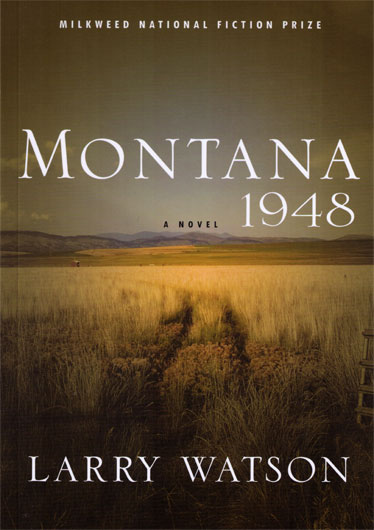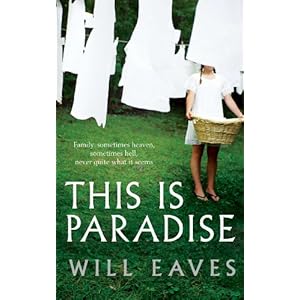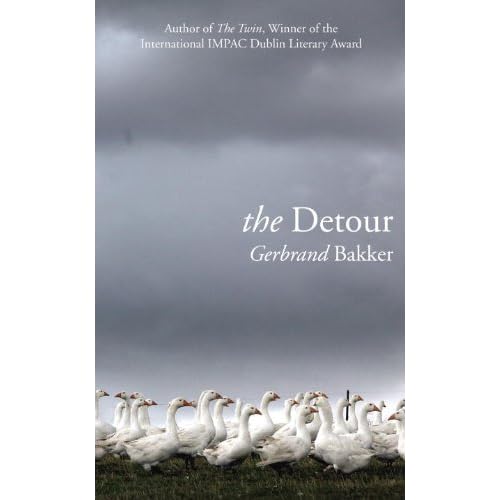Absolution - Patrick Flanery
'the long tail of the root'
After reading work by Damon Galgut and JM Coetzee that deals with the 'new' South Africa, work which ranks near the very top of the contemporary fiction I have read since starting this blog, it is to Patrick Flanery's credit that his debut novel should hold its own against those two, especially as he doesn't have the advantage of being South African himself (Born and raised in America he has recently gained UK citizenship - making him eligible for the Booker...). Not only does Flanery dare to grapple with South Africa's sensitive politics but he also adopts a tricky and complex structure for his novel which some readers may struggle with at first but which is perfectly suited to a novel with themes around truth, buried secrets and the slowly emerging significance of the past.
There are four strands to the story the first of which, under the chapters titled 'Sam', concerns an academic returning to his native South Africa to write the biography of Clare Wald, a successful writer with a complex personal and family history. Then we have the strand from which the novel takes its title, and which we later learn is a 'fictionalised memoir' written by Clare about a break-in at her house and its aftermath. Then comes a first-person narration about Clare's daughter, Laura, who has been missing for many years. And finally a flashback to 1989 told from Sam's point of view. Weaving these strands together Flanery does a good job at holding back information to keep even those readers who cannot help but puzzle-solve as they go through occupied until the final chapters.
With that in mind of course it's hard to know what exactly it is safe to reveal in this review without spoiling the fun. Clare Wald strikes a formidable figure, declaring herself 'a terror' on only the second page, and the relationship between biographer and subject might be interesting on its own but with the immediate suggestion that the two of them have some kind of shared past the cat and mouse games of their interviews together are given a real frisson of something dangerous. Sam has met her previously at an event in Amsterdam but Clare shows no signs of recognition. She does actually recognise him, half-recognised him back in Amsterdam in fact and slowly 'learned to trust [her] memory of him.'
Her work is of interest in large part because she operated as a writer during the era of apartheid, an era dominated by censorship for those hoping to survive under the regime. Some were unable to adapt and opted to flee the country when the 'life of their work' or perhaps even their life itself was placed in 'mortal jeopardy.' Clare learned to adapt in order to keep herself and her family alive (at least that was the rationalization she applied at the time) and speaks of the closeness of her relationship with the authorities in unflinching terms - 'I came to know my molester as intimately as I knew my husband - perhaps more so.' What she makes clear is that the terror of censorship is in some ways enough on its own to wield power over the artist. How can any writer or other artist truly create with any sense of freedom when they know that whatever the make will be submitted for somebody else's approval. Every word is written with them in mind (Clare even personified her 'censor'), self-censorship a natural result of the system.
This is just one of the ways in which we get a sense of Clare as a prisoner. She also feels like a prisoner in her own home (the one she now shares with her help, husband having left for another woman, daughter disappeared, son living elsewhere) with its high level of security, a feeling only intensified by the home-invasion chapters. But Clare has also exiled herself. It is as though nothing outside the walled perimeter matters to her anymore; it is only her memories, her ghosts and her need for forgiveness that preoccupy her now; it is as though these will be her only companions until death finally comes. There are two relationships at the centre of this, the first with her daughter Laura who, as I mentioned earlier, has gone missing.
You are entirely within me now, voice echoing always, a million different voices, all you, borrowed from moments when I heard you as you wanted to be heard, moments you did not realize anyone was listening, perhaps in particular me. These are no substitute, they are all that I have, those million necromanced fragments of you, summoned around the pit of fire yawning between my ribs.
As interesting as the politics of Clare's life as a writer are it isn't the official Truth and Reconciliation committee that really drives her sections but the portrait of a mother desperate for forgiveness and absolution from her daughter, her wish to 'prostrate herself in the name of reconciliation and love.'
Outside the house itself is her garden of course and this is worth mentioning because it picks up on something that Galgut used in his novel The Impostor. It could be seen as a possible metaphor for the new South Africa, or even the abilities of whites and blacks to co-exist at all but the cultivation and teasing of life from the soil and Clare's power struggle with her gardner Adam are just some of the ways in which horticultural references illuminate the politics of everyday conversation. It may only be a disagreement about whether to grow vegetables or not but it seems to be loaded with so much more.
It's not a bad thing. It is merely different. You will see. And if you are right, then I shall see. But you must let me grow what I want, Adam, otherwise we will only come to grief....give them a chance. See if they will flourish.
The metaphor is used again in describing the other significant relationship in Clare's past, that with her sister Nora who married into the the right wing of South African politics. This time it used to explain the twisted ethics of the ruling white class and the crucial difference between Clare and her sister.
Nora's soil, the water she drank, the air she inhaled, it was all polluted. And while she and I grew up with the same conditions, more or less, I had a higher tolerance, natural immunities against the environment that tried so hard to twist our growth to its own malign purpose. But not Nora. She was always susceptible. She was weak.
As we follow Sam, the once native boy returning to a country he barely recognises, we see through his eyes the dangers in every interaction and every waking moment. Even the shortest journeys must be undertaken only by car if at all possible, all houses and offices are encased in several layers of security, every visitor is treated with suspicion and kept at a distance no matter how innocent they may appear. There is also the burden of guilt that comes from being a white South African. His friend Greg tries to show him the ropes, how money must regularly leave his pocket and enter the hands of those less fortunate, and Sam's constant conversions from rands to dollars show how small the amount often is that he kvetches about. But as always with this novel it is the personal dimension that really engages and the most cathartic thing about his return is the way in which it forces him to confront the reasons why he left, the history of his own life that 'keeps coming back like a chronic illness', the secret he has kept hidden from even his own wife.
We often talk of unearthing memories or those things we have kept hidden. Both Clare and Sam in their professional interviews know that there is something personal the two of them need to lift from the ground, 'the long tail of the root, clinging to its earth of history,' and the skill with which Flanery constructs the novel around those details makes this a rewardingly adult read, much like the similarly complex Great House by Nicole Krauss. That book found a place on my books of the year roundup last year and whilst it's too soon to say whether Flanery's will appear on this year's I can certainly confirm it deserves any attention it receives as part of the Waterstones 11 and heralds the arrival of another new writer to keep an eye on. Read more...












